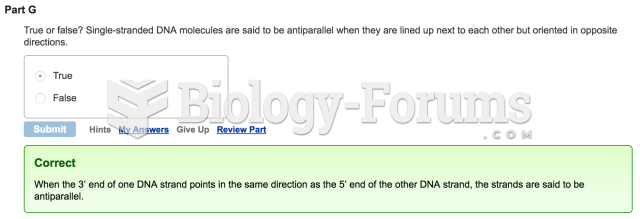|
|
|
Did you know?
Chronic marijuana use can damage the white blood cells and reduce the immune system's ability to respond to disease by as much as 40%. Without a strong immune system, the body is vulnerable to all kinds of degenerative and infectious diseases.
Did you know?
The human body produces and destroys 15 million blood cells every second.
Did you know?
Medication errors are three times higher among children and infants than with adults.
Did you know?
The longest a person has survived after a heart transplant is 24 years.
Did you know?
The Romans did not use numerals to indicate fractions but instead used words to indicate parts of a whole.







